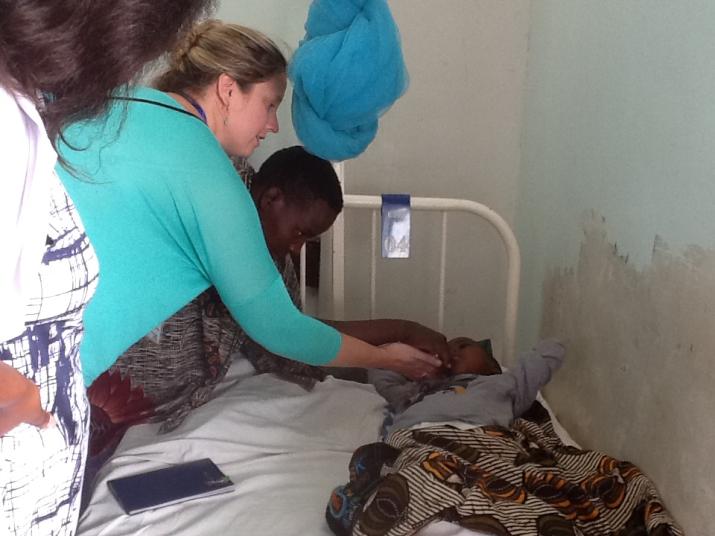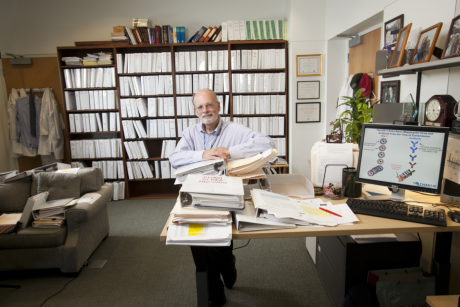It’s believed she is the only trained pediatric oncologist in Tanzania. Kristin Schroeder is a Pediatric Hematology-Oncology attending and also a Global Health Fellow in the Duke Global Health Residency/Fellowship program. She is also part of the new global oncology partnership between the Duke Global Health Institute and Duke Cancer Institute.
Under the mentorship of DGHI faculty members Nelson Chao and Nathan Thielman, Schroeder will spend the year working with local oncologist Nestory Masalu at Bugando Medical Centre, which is the only oncology referral hospital in the Mwanza region and serves eight million people.
Schroeders’ goal is simple. She wants to find ways to improve cancer care and research in Tanzania, where cancer and its growing prevalence is far less familiar than diseases like AIDS. According to the World Health Organization, more than 60 percent of the world’s new annual cancer cases occur in Africa, Asia and Central and South America. These regions account for 70 percent of the world’s cancer deaths.
To date, Duke cancer research in Africa has largely explored its dual burden with infectious diseases like HIV/AIDS. This work is led by DGHI faculty member John Bartlett and Tanzanian colleagues at the Kilimanjaro Christian Medical Center (KCMC). Schroeder’s fieldwork in Tanzania presents a new opportunity to expand this work to cancers in children, and in adults more broadly. Schroeder says cancer care looks very different in sub-Saharan Africa as compared to the US.
“Parents often bring a sick child to the hospital when their cases are too advanced for any treatment to be effective. Even if we were to begin treatment late, due to the cancer burden the side effects can be extremely toxic,” said Schroeder. “When treatment is an option, we tend to lose patients during therapy because of high cost or not returning for follow-up visits. For a patient who requires months or years of chemotherapy, it is currently not practical to provide treatment for patients in these settings who face many challenges of accessing health care.”
Over the next year, she will work to create adapted chemotherapy protocols using the medications available locally, tailored to reduce toxicity for use at Bugando Medical Centre. She will also explore methods for patients to present earlier and stay on therapy.
While leukemia is the most common form of cancer in children in the US, Schroeder says the cancer landscape is very different in Tanzania, with Burkitt’s lymphoma and retinoblastoma being more common. Her starting point for seeking answers for this difference is the development of a cancer registry alongside Duke and Tanzanian collaborators. The registry is building off the work of Duke oncologist and DGHI affiliate Yousuf Zafar, KCMC’s Michael Munishi and former Duke medical student Sky Vanderburg, who started collecting data about 300 miles away at KCMC in Moshi. Schroder will also collect tissue specimens for genomic analyses working in conjunction with another Duke oncologist, Sandeep Dave.
“As we seek to gain a more comprehensive picture of the cancer burden among adults and children in Tanzania, we hope that others from Duke will join us in this important work,” said Chao, Duke physician, DGHI faculty member and director of the Global Cancer Initiative at Duke. “Kristin is starting great work in Tanzania, and we hope others, particularly in nursing and pathology, will join in this effort.”



